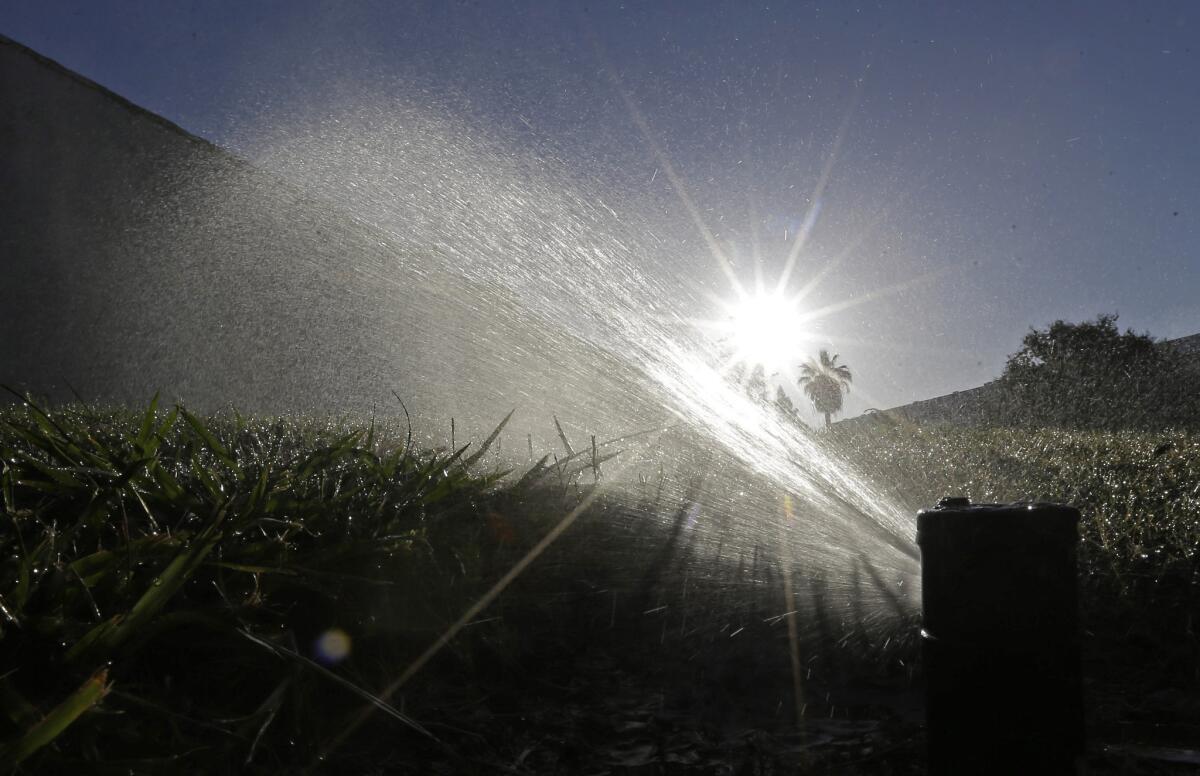Glendale’s water rates violate state law, judge rules

The city of Glendale’s water rate-pricing structure violates Proposition 218, a judge ruled last week.
- Share via
Last week, a judge ruled against the city of Glendale for violating Proposition 218 in creating its current water rate-pricing structure first adopted in 2014, in a lawsuit brought by the Glendale Coalition for Better Government.
In late January, the same Los Angeles Superior Court Judge, James Chalfant, ruled in favor of the same petitioner, the coalition, when he decided that the city must repay nearly $57 million for violating Proposition 26 for an unauthorized transfer of funds from its utilities to the General Fund.
---------------------
FOR THE RECORD
3/3, 9:45 p.m.: A previous version of this story incorrectly stated that Judge James Chalfant ruled in late March that the city had violated Proposition 26. The ruling was made in late January.
---------------------
In three separate issues, the coalition argued that the city of Glendale violated Proposition 218, which requires approval from voters before the city can impose new taxes or increase taxes on property owners.
Join the conversation on Facebook >>
The first issue is in regard to how the city charged different categories of clients for water use.
During a 2014 study to establish water rates, the city had to determine what is known as peaking factor — “the ratio of the maximum flow to the average daily flow in a water system” — among 15 classes of customers.
These included multifamily, single-family, businesses and the city itself. City officials decided that 15 classes were too many and condensed them into just four categories.
The coalition argued, and the judge later agreed, that the city provided no “meaningful evidence” to justify combining its own water-rate usage with those under the commercial category — whose peaking factor is considerably lower than the city’s — and averaging the peaking factor between them both.
“Basically, what that ended up doing is small business subsidizing the city’s use of its water,” said Roland Kedikian, a coalition board member.
The judge also ruled that the 2014 study’s assigned pricing tiers for single- and multiple-family residential groups was incorrect because it was not based on “analysis of cost” as required by Proposition 218. Rather, the city chose to assign tiers based on a “historical usage of water.”
The third portion of the ruling against the city agreed with the coalition that the inclusion of “fire protection costs” — such as fire hydrants — levied against customers in the fixed monthly water charge also violated state law.
According to Proposition 218, fire services are considered a general government service and “available to public at large” and the burden to fund them should not fall disproportionately on water customers.
The Glendale City Council must first vote on whether or not to appeal the ruling before current water customers and those affected by the rate hike can expect new water rates or a reimbursement of any kind.
“The city hasn’t decided to appeal yet, but if it does, the [judge’s] decision will be stayed pending that appeal,” said city spokesman Tom Lorenz in an email.
--
Jeff Landa, jeff.landa@latimes.com
Twitter: @JeffLanda
